By Chris Moon
A lot of people have side hustles.
They take on additional work, in addition to their day jobs, to make a few extra bucks on the side. It’s a good way to make ends meet.
But not all side hustles are simple cash generators. Some emerge from hobbies and take on a life of their own. Some become stand-alone businesses or nonprofit organizations. They become tools to pour blessings back into the community.
And they are as unique as a beekeeping pastor who markets his own honey or a college professor who roasts and sells his own coffee.
In looking for interesting side hustles among Restoration Movement leaders, Christian Standard uncovered three notable ones. Their stories are below.
THE PASTOR AND HIS BEES
About five years ago, Nick Vipperman started keeping bees as a hobby.
Today, when he’s not pastoring Galilee Christian Church in Jefferson, Ga., Vipperman is running a nonprofit called V.I.P.’s Bees, which sells bottles of local honey in his community.
Vipperman is a nature lover, and his father once kept bees. So, Vipperman started off with a small hive that grew into many more as the bees swarmed and split off to start new hives.
“It was really just a hobby for me the first year or so,” he said.
But with beehives comes honey. Quite a bit of it, in fact.
“We’re somewhere around 25 to 30 gallons of honey [per year],” Vipperman said.
He and his wife, Abbie, had to decide what to do with it all. They give away quite a bit of it. But they’ve also found a vibrant market to sell locally harvested honey.
Customers buy bottles individually, and a local restaurant and a small café have sold V.I.P.’s Bees honey or incorporated it into their dishes.
The V.I.P.’s Bees Facebook page is the organization’s main marketing tool, and the Vippermans occasionally do pop-up sales in their driveway.
The honey isn’t a hard sell—harvested locally, not filtered, not pasteurized.
“Folks get excited about the local piece of this,” Vipperman said.
V.I.P.’s Bees honey can come in the practical, plastic squeeze bottles for use around the house. Or Vipperman will put it in an old-school Muth jar with a cork stopper that people can give as gifts.
Some of the profits offset the cost of keeping the hives and bottling the honey. The remainder goes to local missions organizations—to the tune of $1,200 to $1,400 per year.
The honey has helped buy an entire truckload of food for a local ministry that feeds those in need. It also has helped out a local pregnancy resource center.
“We were able to turn our hobby into an opportunity for generosity,” Vipperman said.
For Vipperman, the whole process is therapeutic.
He says he loves ministry, but it can be draining. Sometimes, it’s hard to know how to lead and how to counsel.
But with the bees, Vipperman only has to provide a good environment. The bees do the rest.
“The straightforwardness is very good for my mind,” he said. “Beekeeping is very restorative.”
THE PROFESSOR AND HIS COFFEE
Will Stevens fell in love with good coffee while in graduate school in Durham, N.C.
He wondered what made coffee so much better in some coffee shops and roasteries compared to others. So, he began to do the research—something a chemistry student might be expected to do.
It turned out the answer was simple.
“Freshness was kind of the end of that rabbit trail,” he said.
Today, Stevens is dean of the School of Biological Sciences at Kentucky Christian University. In his off-hours, however, he’s roasting coffee and running his company, Goose Bridle Coffee.
This year alone, he’s roasted and sold about 3,500 pounds of coffee.
“I’m very, very pleased. It’s surprising how it’s gone—even though there have been a series of incremental steps along the way,” Stevens said.
He started roasting coffee using parts from an old propane grill. He gave the coffee away to friends and family.
Demand grew. Soon, Stevens was driving his pickup truck to Cincinnati to pick up bags of beans to bring home to roast.
He upgraded his roaster in his garage and got a food manufacturing permit from the Commonwealth of Kentucky to sell his coffee to the public.
Now, he partners with a coffee shop in Huntington, W.Va., to acquire beans.
“I’ve at least doubled in size every year,” he said.
A big step in the growth of Goose Bridle Coffee was getting a small business loan to buy his own in-house printing capabilities. His Goose Bridle Coffee label is on every bag of coffee.
He’s even partnered with local nonprofit organizations to help them with fundraising campaigns. He puts their logos on each bag of coffee he sells in support of their cause, and he splits his profits with them.
Stevens said he sells a lot of coffee through his website—www.goosebridlecoffee.com. Three regional cafes and two grocery stores also carry it.
Stevens’s dream is eventually to employ a couple of people and have his own location. He wants to contribute to his local economy as an employer and produce something that can make people in Eastern Kentucky proud.
He already knows some locals take bags of Goose Bridle Coffee with them on vacation to give to anyone who will try a cup.
“I think people are surprised how smooth it is,” Stevens said of his coffee.
Most of his product comes from Central America, and primarily from Guatemala. He prefers beans that are full-bodied.
And, of course, Stevens has tried new things—like a good scientist. One of his experiments was opening up a bourbon barrel and aging his coffee beans in it. The test quickly added vanilla tones to the beans.
He said he’s surprised at how far he’s come.
“There’s a surprisingly low barrier of entry to doing your own business,” Stevens said, noting some people think starting a business is an almost impossible hill to climb.
However, if a person can find the right market and offer a unique product, he or she can get something going.
“It’s really not that hard to get involved and start something like this,” Stevens said.
THE CHURCH PLANTER AND HIS COFFEE SHOP
Kevin Bates always has had an entrepreneurial streak.
Multiple members of this extended family have been self-employed. And he carries that creative, growth-oriented trait with him.
And so church planting made sense. Bates launched Resonate Christian Church 11 years ago in Sherwood, Ore.—near Portland.
But the economic slowdown during that period meant something had to give. The new church struggled financially.
Rather than head out onto the fundraising trail again, Bates opted to do something different to bring in some extra cash to help support his family—and his ongoing ministry.
Bates opened Symposium Coffee.
“We kind of looked at it very pragmatically at the time,” Bates said.
Bates came into the business after networking with people in Sherwood, including members of the business community. Bates remembers being in a chamber of commerce meeting and being told that if he really wanted to get involved in the fabric of the community—which Bates certainly did as a church planter—he needed to start a business.
“It has helped us become a stakeholder in the community, very much so,” he said of the coffee shop.
The debut of Symposium Coffee—which also serves other beverages—was so well received that Bates was approached by a business leader in the nearby community of Tigard, Ore., to open a second location there.
Now Bates operates a 3,000-plus-square-foot coffee shop in Tigard to go along with his 2,600-square-foot shop in Sherwood. The Sherwood location is in an old craftsman bungalow house. The Tigard shop is in a renovated feed store.
Now, more than a decade into his coffee shop business, Bates considers Symposium Coffee to be a “marketplace ministry.” He learned about the idea while visiting missionaries in Vietnam who used their businesses to reach deeper into their communities.
“I was really intrigued by it,” Bates said.
Bates said 75 percent of Resonate Christian Church’s members have come from “shop relationships” he has built.
But being a business owner and a pastor has required a significant time commitment. Bates said he must carefully manage his time to complete all the work he needs to accomplish in any given week.
Bates said he regularly gets calls from pastors across the country who want to do the same thing he’s doing. He said not every pastor is wired for a marketplace ministry.
“Your workload is going to exponentially increase compared to what you’re used to,” he said.
But the business has been a blessing to the community. Symposium Coffee has its own label and has regularly given away product to community groups trying to raise money.
“We’re able to do a lot,” he said.
Chris Moon is a pastor and writer living in Redstone, Colorado.

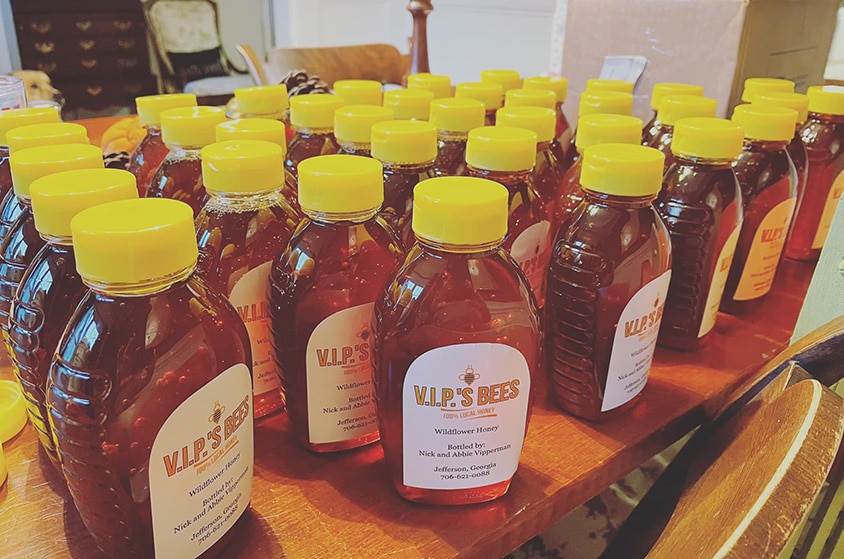
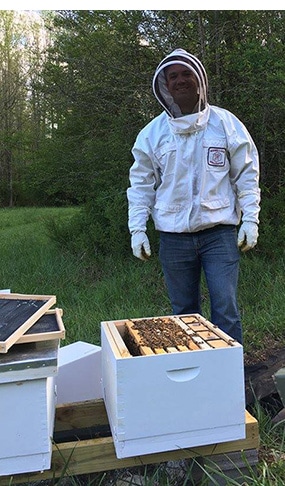
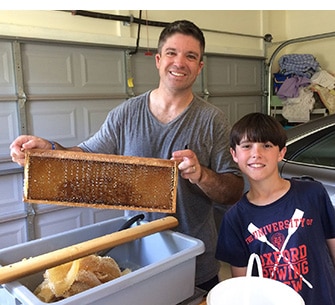
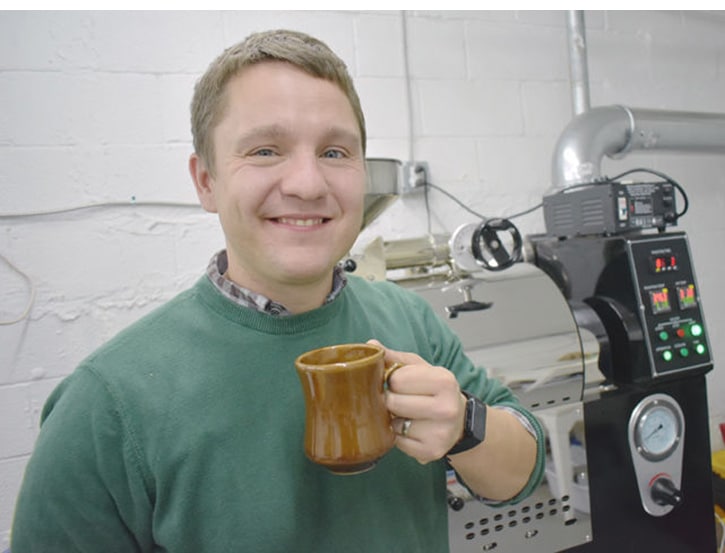

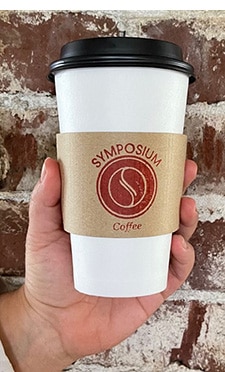
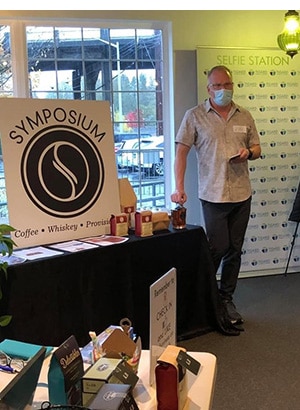
We planted a church outside of Pittsburgh in 2003. We sell railing kits on Etsy. Pays the bills and employs two men from the church.